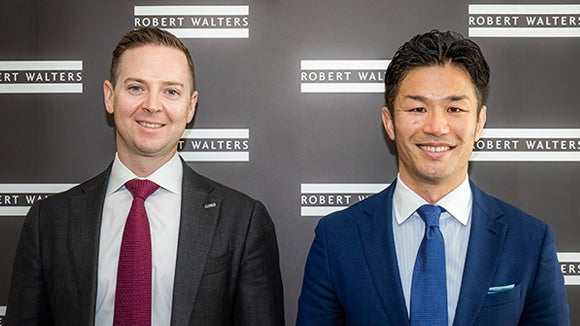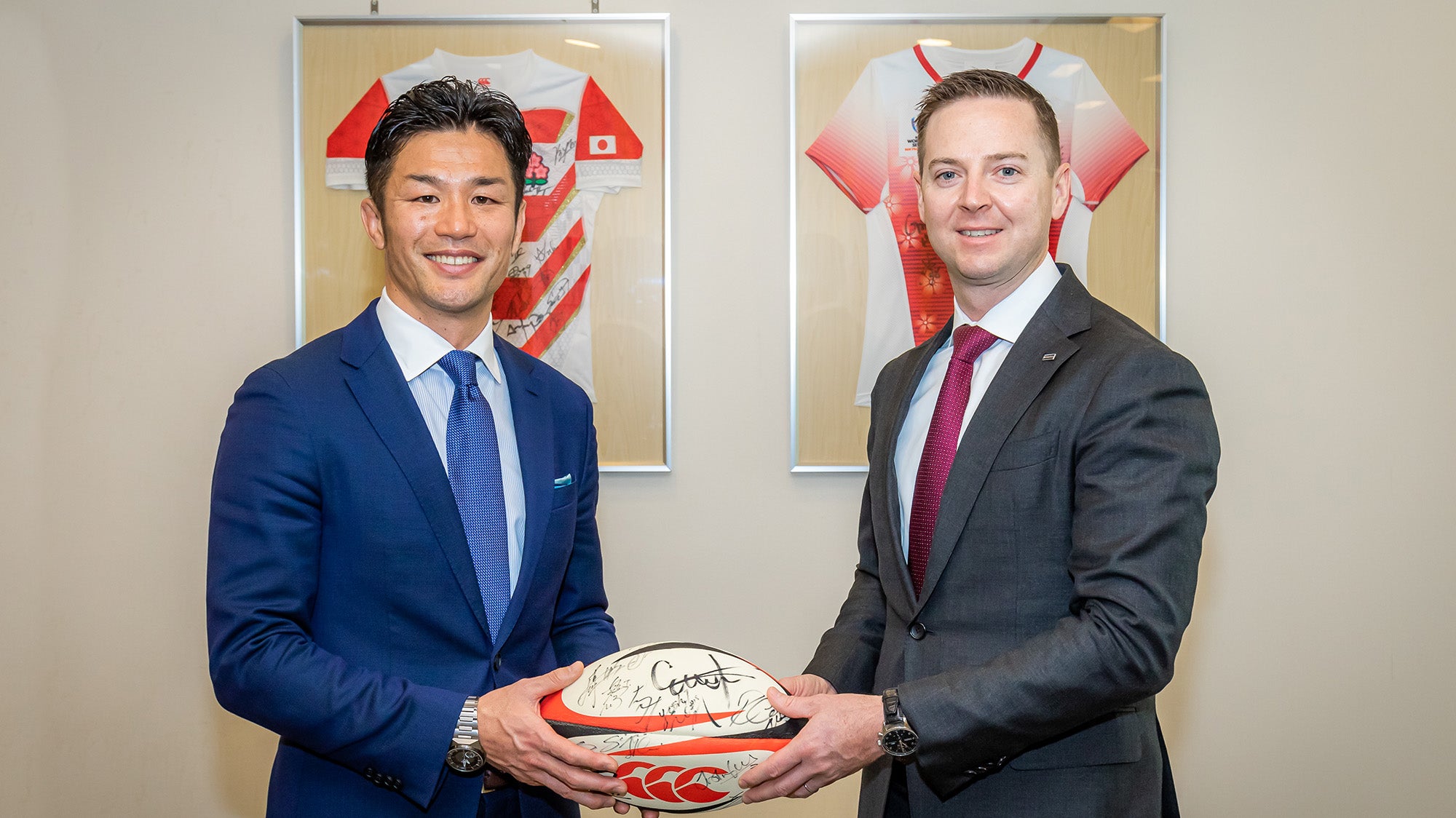ラグビー元日本代表 廣瀬俊朗さん×代表取締役 ジェレミー・サンプソン
ラグビー元日本代表 廣瀬俊朗さん×代表取締役 ジェレミー・サンプソン
ラグビー元日本代表の廣瀬俊朗さんは、2012年、ワールドカップ(W杯)イングランド大会を目指す日本代表のキャプテンに就任しました。その後、日本代表は2015年W杯イングランド大会で3勝1敗の好成績を収め、2019年W杯日本大会での初の8強進出に繋がりました。「大きな成功を収めるためには、小さな成功を積み重ねることが大切」と語る廣瀬さん。ラグビー人生で学生時代から一貫してキャプテンを務めてきた廣瀬さんに、ロバート・ウォルターズ・ジャパン社長のジェレミー・サンプソンが、世界で勝つためのリーダーシップとチームマネジメントについて聞きました。
小さな成功体験を積み重ねることと、ゴールを共有すること
廣瀬さんは、2012年、W杯で4大会未勝利だった日本代表のキャプテンに就任した。著書で「チームはマインドが変われば1日で強くなる」と述べていた廣瀬さんだが、どのようにチームを率いていったのだろうか。「ずっと負けているチームだったので、負けを認めるような、言い訳が多かった。それを壊すことから始めました。小さな成功を積み重ねることによって、『勝利のマインドセット』を作っていこうと思っていました」
小さな成功を積み重ねることに加え、廣瀬さんが重視していたのは、自分たちにしかない「大義」を持つということだった。「大義」とは何か。廣瀬さんは「ゴールを共有すること」だと語る。「ラグビーを幼稚園の子供達が楽しみ、代表のジャージーを着てくれる。そんな世界を作りたい、というのが僕たちのゴール。そのために勝つ。自分たちが作りたい、描きたい世界が明確であれば、みんなのモチベーションは上がります」
オーストラリアでの学生時代に、選手として5年間ラグビーをプレーしていたというサンプソン社長。廣瀬さんのリーダーシップ論に強く同意した。「その通りですね。リーダーのとても大きな役割の一つに、皆が共有できる将来のビジョンを作り、全員を同じ方向・目標に向かわせるというものがあります。ビジネスであろうと、スポーツだろうと、チームのメンバーには、それぞれの強みや才能があります。リーダーの仕事は、そうした才能と強みを一つにまとめ、同じゴールやビジョンに向かってチームを走らせることなのです」
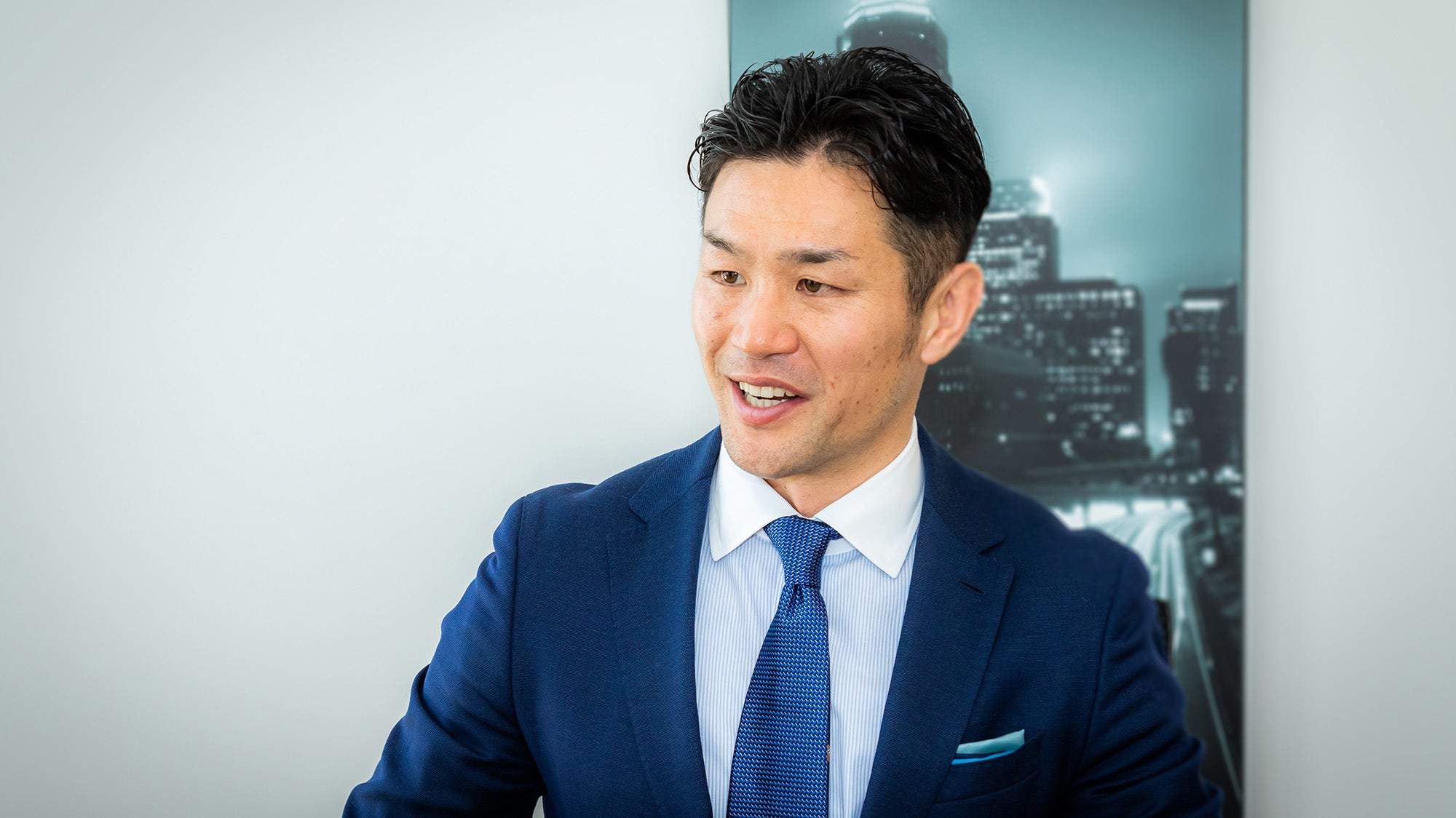
ダイバーシティとは、メンバーを個人として理解すること
ラグビーの日本代表チームはスポーツの中でも、特に多国籍な選手で構成されている。さらにポジションの数も多い。そういった多様な人々を組織としてまとめる際、廣瀬さんはどのようなことに気を遣っていたのか。廣瀬さんは2つのポイントを挙げた。「一つ目は、チームのゴールを明確にすること。皆で作り出したい世界を共有できるかというところ。もう一つは、同じ国籍ではなくても同じ人間なので、まず良い人間関係を築くことを大事にしています。国籍や文化の違いについては、『違いを楽しむ』という考え方がすごく大切です」
サンプソン社長は、ビジネスにおいてもダイバーシティが非常に重要だと指摘する。「廣瀬さんのおっしゃるとおり、その人のバックグラウンド、国籍、文化が何であれ、チームのメンバーを『個』として理解し、尊重することが大切だと思います。多国籍の人材で構成されるチームを率いることになっても、一人ひとりを尊重し、1対1の関係性を重視する。全てのメンバーとの信頼関係を積み重ねることで、チームはONE TEAM(一つのチーム)としてまとまることできます」
「それは単純に『受け入れること』と『オープンマインド』であるということかもしれませんね。日本はこの10年で大きく変化したと感じています。日本の人々は、多様でグローバルになるという変化をより自然に受け入れるようになったと思います。その人がどんな国籍やバックグラウンドがあろうと、理解し、個人の強みを発揮させる。そして組織が一つになる。リーダー次第です。目的に対して、どれだけ貢献できるチームを作れるかが、リーダーの挑戦です」
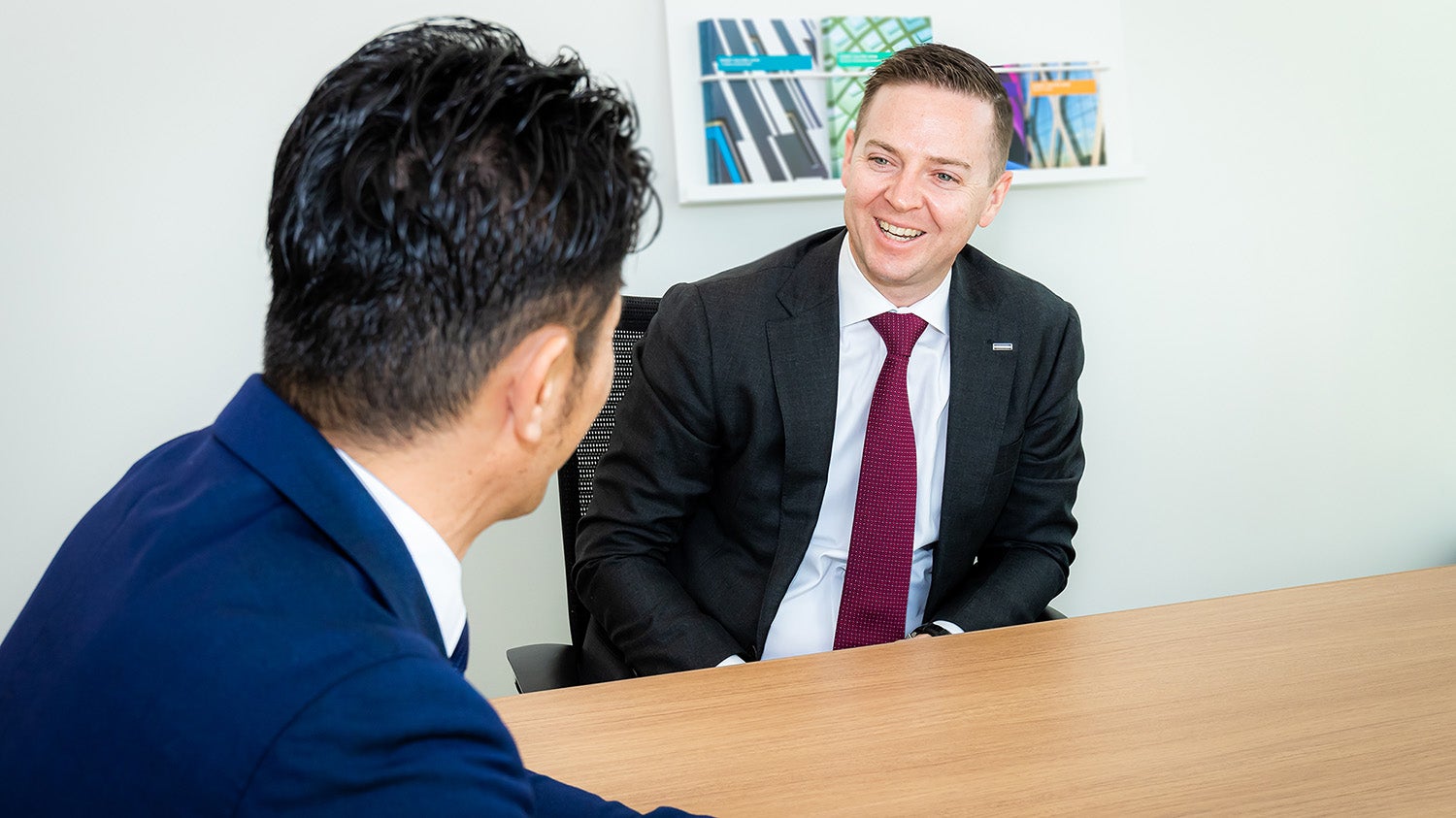
ダイバーシティは、組織の強さにつながる
サンプソン社長は、組織におけるダイバーシティの可能性について続けた。「ダイバーシティは、イノベーションに繋がります。多様性を高めていくことで、多様な価値観を理解し、より多くの考えを生み、組織全体を育み、成長に導くことができると思います」
ビジネスの世界では、組織にダイバーシティがあり、組織に属する人々の力をうまく活かすことができれば、組織はパフォーマンスを発揮できるとサンプソン社長は話すが、ラグビーでもそうなのだろうか。
廣瀬さんは、「全く一緒です」と強く頷く。「日本人だけで固まってる時は、自分たちの良さがあまり理解できていなくて。ダメだダメだと思っていました。その後、エディ・ジョーンズ監督が来て、トンプソン・ルークが来て、日本代表にはこんな良い面があるよと教えてくれて、それを信じて、すごく良くなりました。また、逆のことも言えます。たとえばトンガ人のチームメートがいました。たぶん彼はトンガ代表で戦うより、日本代表で戦った方がポテンシャルがさらに引き立つ選手だった。トンガ代表では彼のフルポテンシャルは出せなかったけれど、日本での厳しい練習を通してポテンシャルをより発揮することができた。僕らが海外の人に助けられたこともあるけれど、海外出身の彼にとっても日本のカルチャーが助けになった部分があると思う。ダイバーシティは、お互いにとってプラスです」
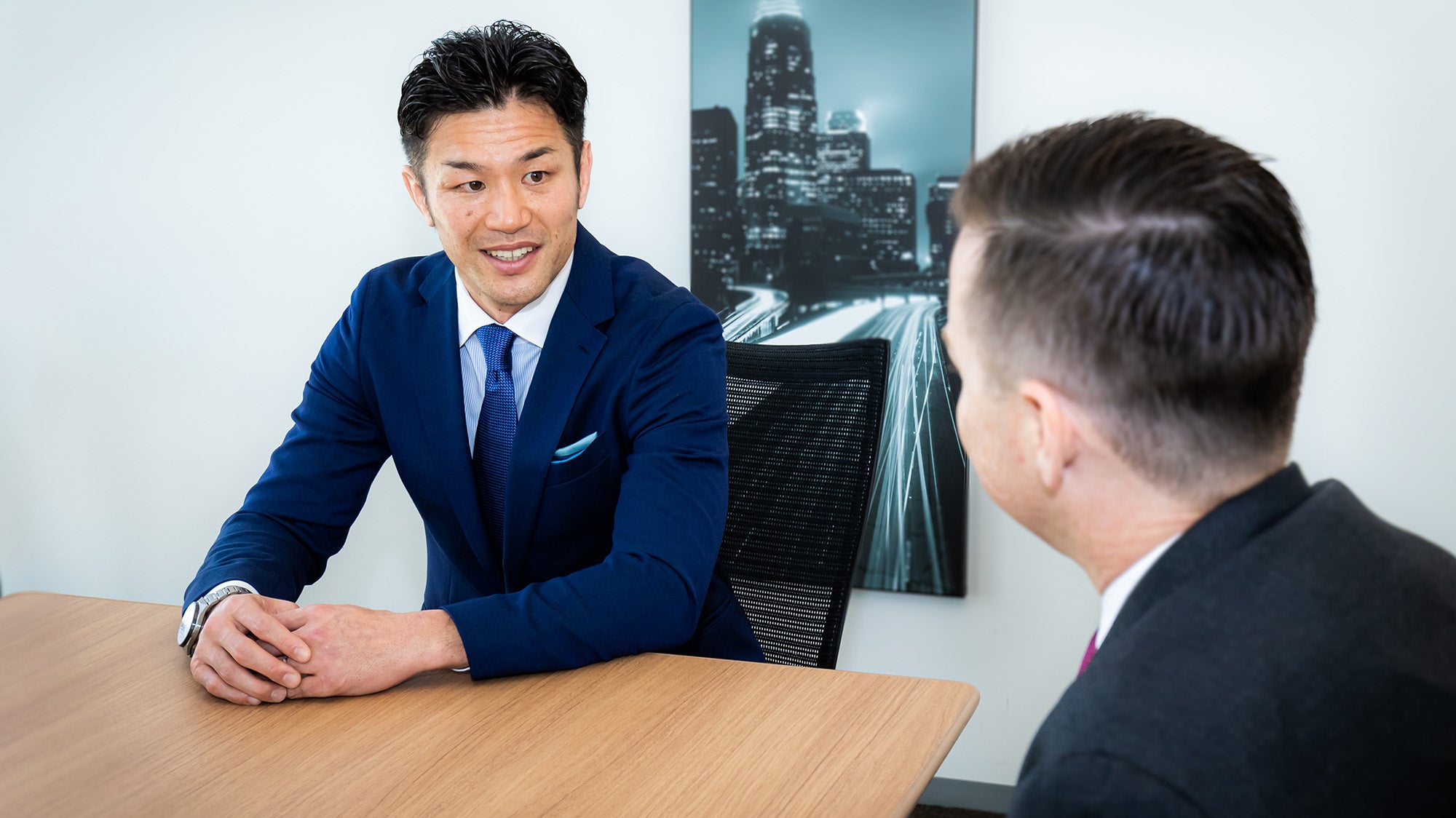
不安を乗り越えるために「コントロールできることに集中する」
2015年9月19日、W杯イングランド大会で日本代表は、初戦で強豪南アフリカに34−32で勝利した。W杯での勝利は、24年ぶり2勝目だった。大きな挑戦をする際、廣瀬さんは、不安を乗り越えるために、どのようなことをしてきたのだろうか。
「なりたい世界があるので、そこをずっとみつめていました。勝ったことがないチームでしたので『勝ったら最高、失うものは何もない』というマインドセットで戦っていきました。そして一歩一歩、強くなっていく。スモールステップですね。戦う前から『勝てない』と思う試合はありませんでした」
自分たちが準備してきたものを出すことに集中して試合に臨んだという廣瀬さん。重要なのは「自分でコントロールできるものにフォーカスするマインド」だという。結果はコントロールできないが、自分たちが準備してきたものをしっかり出し切ることはできる。廣瀬さんはそう強調する。
ビジネスでも大事な局面で自信を与えてくれるのは「準備」だと、サンプソン社長も同調する。「ラグビーにおいて、準備ができていない状態で試合に出向くことがないように、ビジネスでも、リーダーが一人ひとりの社員をトレーニングし、コーチングをし、成長を促す。そのおかげで、ベストな状態でチャレンジに挑めるようになります」
サンプソン社長は、小さな勝利はビジネスでも自信を持つために必要と話す。「小さな勝利を積み重ねることの大切さは、どんな人にも共通して言えることだと思います。時に、ゴールが大き過ぎたり、チャレンジング過ぎることがあります。その場合は、ゴールを細かなピースに分けて捉えることが重要です。これまで乗り越えて来たチャレンジ、経験してきた勝利を振り返って、自分は何が実現できるのかを捉える。経験から、強み・弱みを把握する。そうすることで、乗り越えられる。困難やチャレンジに向き合うとき、自分自身に向き合うことは大切なプロセスです。なぜなら、人は皆、チャレンジを乗り越えて進んでいるから」
「最後におっしゃっていた、コントロールできるものに集中しようというのは全くその通り」とサンプソン社長は続けます。「ビジネスでも、自分のチームの中でできること、チームのパフォーマンスに集中するのが得策ですね。競合他社がどうするかとか、市場がどう動くかはコントロールできないものですから。自分たちができることに集中し最善を尽くすのが大事だと思います」
チャレンジしない人生よりも「やりすぎたな」くらいの人生を
ラグビー人生を通じて、大きな挑戦を続けてきた廣瀬さんに、目標や夢に向かって一歩踏み出そうという人へのメッセージを聞いた。「まずは自分を信じることだと思います。やってみないとわからないことはたくさんあるので、まずは『いいな』と思ったらやり始めることが大事。最後『やりすぎたな』くらいで死にたいと私は思っています。『ああ、これチャレンジせえへんかった、これもせえへんかった』っていうより、『いっぱいチャレンジして、なんかおもろかったな』とかいう感じが好きなんです」
廣瀬さんの言葉を受けて、サンプソン社長も挑戦を目の前に迷っている人へエールを送った。「私は、挑戦は成長につながるものだと考えています。挑戦によって、人は、自分のスキルを伸ばすことができ、新しい経験を通じて学ぶことができ、人生を一つ先に進められると思っています。挑戦を避けて自分のコンフォートゾーンに留まっている方が簡単ですが、それではあまり成長は得られません。時にはリスクを冒し、自分自身の限界に挑戦することで、人は、『個』として、そして『プロ』として、成長するのだと思います。成長を続けるためにも、挑戦は大切だと思います」
Related content
View allグローバル人材の転職を支援する人材紹介会社ロバート・ウォルターズ・ジャパン株式会社は、2024年6月1日付で同性パートナーに配偶者と同等の待遇を提供する福利厚生を開始しました。 日本では現時点で同性婚が法的に認められていない為、一方のパートナーが社会保険の扶養を受けたい場合、権利が与えられていないのが現状です。つまり健康保険や厚生年金の扶養に入れる条件を満たしていたとしても、同性婚という理由から、扶養申請をする事ができず、各自治体の区役所にて国民健康保険、国民年金を自身で負担する必要があります。 今回、当社は同性のパートナーがいる社員で、そのパートナーが健康保険組合の提示する扶養条件を満たす場
もっと読むグローバル人材の転職を支援する人材紹介会社ロバート・ウォルターズ・ジャパン株式会社は5月30日、4月に開催された「東京レインボープライド2024」の当社のブースに来場いただいた会社員の方を対象とした職場における多様性と包括性に関する最新の調査結果を発表しました。 多様性と包括性の重要性 多様性と包括性、特にLGBTQ+を積極的に推進する企業で働くことの重要度を回答者が1~10の10段階で評価した結果、43%が多様性と包括性に富んだ企業で働くことが非常に重要であるという「10点」の評価をしました。反対に、まったく重要でないという評価したのはわずか5%で、多様性と包括性の重要性を理解し推進する企業
もっと読むグローバル人材の転職を支援する人材紹介会社ロバート・ウォルターズ・ジャパン株式会社は、アジア最大級のLGBTQ+イベント「東京レインボープライド2024」(2024年4月19日(金)~21日(日)開催)に初協賛・出展いたします。 「東京レインボープライド2024」は、性的指向、性自認にかかわらず、すべての人が、より自分らしく前向きに生きていくことができる社会を目指し、LGBTQ+当事者、支援者(アライ)とともに性の多様性を発信するアジア最大級のイベントです。 【東京レインボープライド*への協賛について】 今回、当社は誰もが自分らしく生き、尊重される文化の醸成を目指す企業として同イベントへの初協
もっと読む
